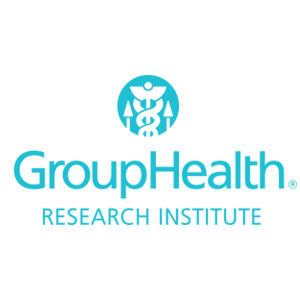- Our Research
- Research Areas
- Addictions
- Aging & Geriatrics
- Behavior Change
- Biostatistics
- Cancer
- Cardiovascular Health
- Child & Adolescent Health
- Chronic Illness Management
- Health Informatics
- Health Services & Economics
- Healthy Communities
- Medication Use & Patient Safety
- Mental Health
- Obesity
- Preventive Medicine
- Social Determinants of Health
- Vaccines & Infectious Diseases | COVID-19
- Our Scientists
- Collaborate with Us
- Our Publications
- Research Funding Sources
- Research Areas
- News and Events
- Get Involved
- About Us
- Live Healthy
All Articles
- Dr. Rob Reid: Bridging research and operations at Group Health
Robert (Rob) Reid, MD, PhD, answers questions about his new role as Group Health’s first-ever associate medical director of health services research & knowledge translation.
- Online messaging delivers follow-up care for depression
Online messaging can deliver organized follow-up care for depression effectively and efficiently, according to a randomized controlled trial of 208 Group Health patients that the Journal of General Internal Medicine e-published March 2011.
- ‘Teaching’ computers to read doctors’ notes promises gains in research efficiency
“Natural language processing” (NLP) is a computing function Group Health Research Institute is testing and using to target mentions of specific words and phrases in this free text by parsing human-language sentence structure. As the accuracy of NLP is perfected, this technology can supplement skilled chart abstraction and may provide faster access to larger, richer bodies of data.
- Time to raise how many mammograms radiologists must read?
Changing policy could make screening for breast cancer more accurate
- Screening mammograms catch second breast cancers early
More women are surviving longer after having early-stage breast cancer, but they are at risk of developing breast cancer again: a recurrence or a new cancer, in either breast. Annual screening (a.k.a. “surveillance”) mammography has long been standard for these women, but only scant evidence on screening outcomes supported this practice. In the February 23, 2011 Journal of the American Medical Association, the most comprehensive relevant study to date shows yearly mammograms do detect second breast cancers early.
- Team-based approach to patient care shows success in fight against depression with diabetes, heart disease
In a randomized controlled trial, testing a primary care intervention called TEAMcare, nurses worked with patients and health teams to manage care for depression and physical disease together, using evidence-based guidelines. The result for patients: less depression, and better control of blood sugar, blood pressure and cholesterol and improved quality of life.
- Group Health, ITHS launch free health literacy e-course
Group Health, ITHS launch free health literacy e-course
Kaiser Permanente Washington Health Research Institute for:
Kaiser Permanente Washington Health Research Institute
Phone: 206-287-2900Fax: 206-287-2871
Contact us
Sign up for our newsletter
Policy on Conflict of Interest
Nondiscrimination Notice and Language Access Services
Land Acknowledgment
Our Seattle offices sit on the occupied land of the Duwamish and by the shared waters of the Coast Salish people, who have been here thousands of years and remain. Learn about practicing land acknowledgment.



